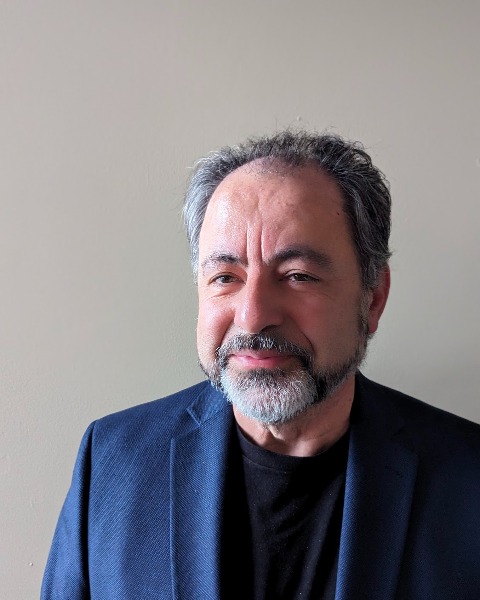Monday Poster Session
Category: Diet, Nutrition, and Obesity
P2705 - Lack of Gastrin Hormone Physiological Reaction in Patients With Gastric Bypass Surgery
Monday, October 27, 2025
10:30 AM - 4:00 PM PDT
Location: Exhibit Hall

Mumtaz Tabbaa, MD (he/him/his)
Natividad Medical Center
Salinas, CA
Presenting Author(s)
Mumtaz Tabbaa, MD, Alex Distante, MD
Natividad Medical Center, Salinas, CA
Introduction: Hypergastrinemia is a physiological reaction found in 16% of the users of gastric acid suppression treatment (PPIs and H2 Blockers),[1]. Hypergastrinemia incidence also increased in the presence of gastric acid modifiers such as bile reflux,[1]. Other certain gastric hormones such as Ghrelin and GLP1 action changes were found in patients with Bariatric surgery,[2]. This study was designed to evaluate the Gastrin hormone physiologic reaction in patients with Gastric Bypass surgery.
Methods: 143 patients with dyspepsia from GERD or PUD were involved. All patients had serum Gastrin hormone measurement on the morning of endoscopy. 47 of the tested patients had Gastric Bypass surgery, and 23 amongst them were taking PPI or H2 Blockers. 96 patients did not have bariatric surgery, and 56 of them were users of PPI or H2 Blockers. The incidence of Hypergastrinemia was reported and compared among all 4 groups. Patients with bile reflux and chronic atrophic gastritis were excluded.
Results: There was no incidence of Hypergastrinemia detected in patients with Gastric Bypass surgery, including the users and non-users of acid suppression treatment, comparing to 10/56 (18%) had Hypergastrinemia in acid suppression treatment users of the patients without bariatric, (p< 0.05). No Hypergastrinemia incidence was found in patients without surgery and without acid suppression treatment.
Discussion: There was no physiological reaction of Gastrin Hormone to the use of acid suppression treatment in patients who had Gastric Bypass surgery. However, this hormonal response could be different in patients with Sleeve Gastrectomy because of the possibility of bile reflux which will be studied separately. This is the first observation of Gastrin hormone in Gastric Bypass patients, where further and larger studies should be done in the future. The absence of the Gastrin reaction in Gastric Bypass patients has different etiology comparing to patients with previous Billroth I and II surgery because of the resected gastric antrum in the ulcer surgery patients. Direct contact of the gastric contents with the G cell tissues of the antrum could be essential for the stimulation of Gastrin hormone. The clinical improvement of GERD following Gastric Bypass surgery could be attributed to this Gastrin hormonal changes, however more studies are needed.
References:
[1] Tabbaa et al, Gastroent. 2017
[2] Jacobsen et al, Obes. Surg. 2012
Disclosures:
Mumtaz Tabbaa indicated no relevant financial relationships.
Alex Distante indicated no relevant financial relationships.
Mumtaz Tabbaa, MD, Alex Distante, MD. P2705 - Lack of Gastrin Hormone Physiological Reaction in Patients With Gastric Bypass Surgery, ACG 2025 Annual Scientific Meeting Abstracts. Phoenix, AZ: American College of Gastroenterology.
Natividad Medical Center, Salinas, CA
Introduction: Hypergastrinemia is a physiological reaction found in 16% of the users of gastric acid suppression treatment (PPIs and H2 Blockers),[1]. Hypergastrinemia incidence also increased in the presence of gastric acid modifiers such as bile reflux,[1]. Other certain gastric hormones such as Ghrelin and GLP1 action changes were found in patients with Bariatric surgery,[2]. This study was designed to evaluate the Gastrin hormone physiologic reaction in patients with Gastric Bypass surgery.
Methods: 143 patients with dyspepsia from GERD or PUD were involved. All patients had serum Gastrin hormone measurement on the morning of endoscopy. 47 of the tested patients had Gastric Bypass surgery, and 23 amongst them were taking PPI or H2 Blockers. 96 patients did not have bariatric surgery, and 56 of them were users of PPI or H2 Blockers. The incidence of Hypergastrinemia was reported and compared among all 4 groups. Patients with bile reflux and chronic atrophic gastritis were excluded.
Results: There was no incidence of Hypergastrinemia detected in patients with Gastric Bypass surgery, including the users and non-users of acid suppression treatment, comparing to 10/56 (18%) had Hypergastrinemia in acid suppression treatment users of the patients without bariatric, (p< 0.05). No Hypergastrinemia incidence was found in patients without surgery and without acid suppression treatment.
| Hypergastrinemia | No PPI/H2 | Users PPI/H2 |
| Gastric Bypass | 0/24 | 0/23 |
| No Surgery | 0/95 | 10/56 (18%) |
Discussion: There was no physiological reaction of Gastrin Hormone to the use of acid suppression treatment in patients who had Gastric Bypass surgery. However, this hormonal response could be different in patients with Sleeve Gastrectomy because of the possibility of bile reflux which will be studied separately. This is the first observation of Gastrin hormone in Gastric Bypass patients, where further and larger studies should be done in the future. The absence of the Gastrin reaction in Gastric Bypass patients has different etiology comparing to patients with previous Billroth I and II surgery because of the resected gastric antrum in the ulcer surgery patients. Direct contact of the gastric contents with the G cell tissues of the antrum could be essential for the stimulation of Gastrin hormone. The clinical improvement of GERD following Gastric Bypass surgery could be attributed to this Gastrin hormonal changes, however more studies are needed.
References:
[1] Tabbaa et al, Gastroent. 2017
[2] Jacobsen et al, Obes. Surg. 2012
Disclosures:
Mumtaz Tabbaa indicated no relevant financial relationships.
Alex Distante indicated no relevant financial relationships.
Mumtaz Tabbaa, MD, Alex Distante, MD. P2705 - Lack of Gastrin Hormone Physiological Reaction in Patients With Gastric Bypass Surgery, ACG 2025 Annual Scientific Meeting Abstracts. Phoenix, AZ: American College of Gastroenterology.
